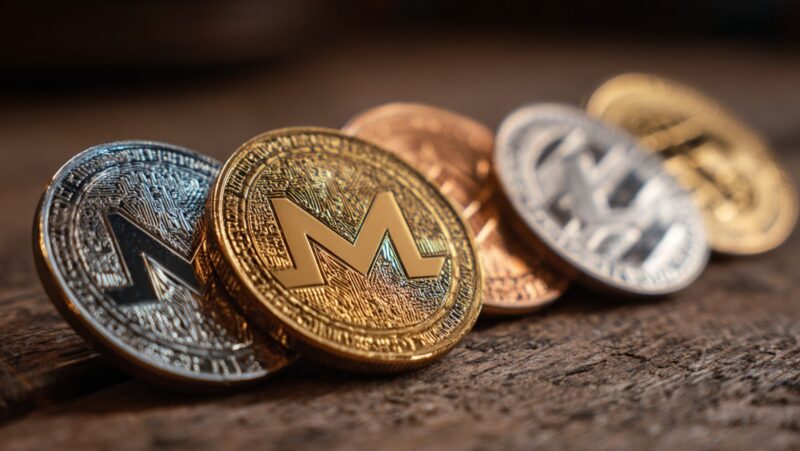
The primary purpose of crypto wallets is to store public and private keys for your cryptocurrency holdings. They enable you to access your coins and manage the sending and receipt of payments. With the continued evolution and expanded use of blockchain technology, there will also likely come a point when we can use wallets to store everything from medical records to financial details and social security data.
Make Digital Payments
Cryptocurrencies like Bitcoin are used primarily as a means of digital payments. They enable us to send payments to e-commerce sites, crypto-forward businesses, gaming sites, and MetaMask casino sites that allow crypto deposits and withdrawals to gain access to large collections of casino games. Metamask is one of the most popular crypto wallets available, but there are many others. Users need to choose according to the types of currencies and tokens they hold, as well as the additional features offered.
Receive Crypto Payments
Strictly speaking, crypto wallets do not hold cryptocurrency, which is a digital currency and therefore not a physical asset. However, wallets are used to store, send, and receive crypto keys: both public and private keys. So, wallets don’t really receive cryptocurrency, but they do receive the keys and they do provide access to received crypto funds. It is still possible to receive these keys from the sender, but wallets offer a convenient and secure means of transacting.
Store Crypto Keys
Cryptocurrency isn’t stored anywhere, but users need to have access to the private and public keys to be able to use the cryptocurrency. Without a crypto wallet, users would have to store keys on bits of paper or files on computers. Neither of these methods of storage are secure, and they certainly aren’t convenient.
Store Other Crypto Assets
Crypto wallets can be used to store other types of crypto asset. This includes tokens and NFTs.
Tokens are assets that are built on top of existing blockchain networks. They include some major altcoins, and most meme coins are, in fact, crypto tokens because they do not have their own blockchain network. Tokens can also include governance tokens, which are distributed by companies and entities to their members. The tokens typically allow holders the right to vote or have their say in important decisions, or they may offer access to unique features and benefits such as the opportunity to meet sports team players associated with the token.
Non-fungible tokens (NFTs) are, effectively, digital collectibles. They can include artwork, audio files, and Internet memes that are minted on blockchain before being sold or distributed. There is a sizeable market for NFTs, and they are used in blockchain gaming. They can also be associated with physical products to effectively tokenize items ranging from bars of gold bullion to rare whiskeys and priceless artwork.
Improved Crypto Security
Cryptocurrency is designed to be secure and uses high-level cryptography to obfuscate data and details. However, it is only as secure as the method that is used to store crypto keys. A lot of people, especially novice investors, hold their cryptocurrency on exchanges. However, holders should know that the exchanges themselves retain the private keys in these cases. It makes it quicker and easier to initiate and process transfers, but it means that the holder never really owns their own cryptocurrency.
Exchanges are also prone to attack by thieves and hackers. Even some of the world’s largest exchanges have suffered attacks and lost customer assets as a result. The Mt.Gox exchange loss still hangs over the cryptocurrency market more than ten years after it occurred. Holding keys in a crypto wallet offers greater security than storing them on exchanges.
Track Cashflow
Crypto wallets are similar, in a lot of respects, to digital wallets. Not only are they used to send and receive payments but they also retain data on transactions made. This means the user can use their crypto wallet’s data as a means of tracking incomings and outgoings. Some modern wallets make it possible to have multiple wallet addresses, which means that the user can essentially have multiple accounts, therefore making it even easier to track payments.
Monitor Your Portfolio Performance
Another area where crypto wallets have advanced in recent years is in their portfolio management. Wallets like MetaMask enable users to directly buy and sell crypto, or exchange one crypto for another. It is even possible to access NFT marketplaces to buy or sell non-fungible tokens.
These actions do usually require that the user sets up additional accounts, but it means that cryptocurrency balances barely touch exchange accounts. They can also track the value of cryptos in local currencies and display the current and historical performances of a portfolio. Some may even offer basic charting and analytical tools, enabling quick trading decisions to be made.
The Future
Cryptocurrency wallets have the potential to hold or access any information stored on blockchain networks. Soon, we are likely to see more information on crypto transfers and portfolios. In-depth reporting and additional centralized and decentralized connections may become available.
In the long-term, anything that can be stored on blockchain could be stored, or accessible, via a crypto wallet. This could include financial and banking information, which could be integrated with crypto balances by that point. Personal details could also be shared, as well as healthcare and social security records. The information would be sharable, which means users would be able to share their healthcare records when they want and with whom they want before removing that access and making the details private again.
Conclusion
Crypto wallets are primarily used to send and receive cryptocurrency payments. They are typically used for online purchases, although an increasing number of physical and retail businesses are beginning to accept the digital currency.

Furthermore, modern and advanced wallets tend to offer more than basic payment facilities, offering the capability to buy, sell, and trade crypto, as well as the ability to hold tokens, NFTs, and other crypto assets.



